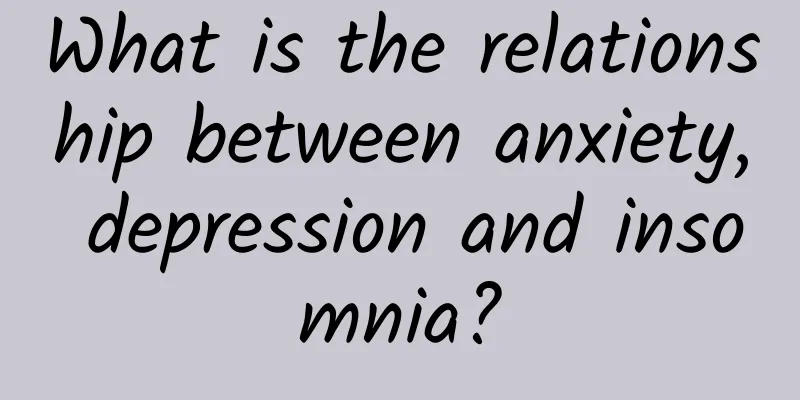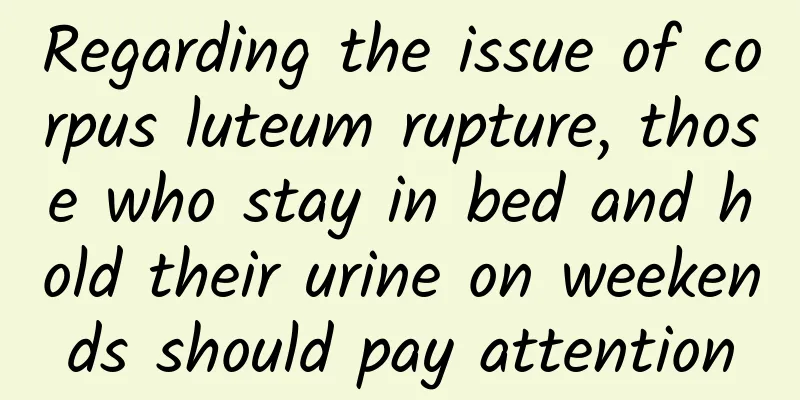What is the relationship between anxiety, depression and insomnia?

|
The interconnectedness between anxiety disorders, depression, and insomnia is reflected not only in their shared symptoms, but also in their close links in biological and psychological mechanisms. These three mental health problems often cause and effect each other, forming a complex cycle in which one problem may lead to the development of the other two, and vice versa. For example, long-term insomnia may lead to the emergence of depressive symptoms, while depression and anxiety further exacerbate insomnia problems. Their comorbidity suggests that all three aspects need to be taken into account during diagnosis and treatment to achieve a more comprehensive and effective treatment effect. Treatments for these three conditions often include medication, psychotherapy, and lifestyle adjustments to comprehensively address their complex connections and mutual influences. 1The relationship between anxiety, depression, and insomnia 1.1 Anxiety and Insomnia Addressing sleep problems in anxiety disorders is not only key to alleviating current symptoms, but is also an important step in preventing long-term effects on mental health. To this end, common treatments include cognitive behavioral therapy (CBT), particularly cognitive behavioral therapy for insomnia (CBT-I), which helps patients identify and change negative thought patterns about sleep and develop better sleep habits. In addition, relaxation techniques such as deep breathing, meditation, and progressive relaxation training are often recommended to reduce the brain's alert state and help people with anxiety disorders fall asleep more easily. Equally important, physical activity and avoiding stimulating food or drink may also help improve sleep quality, thereby reducing anxiety symptoms. This suggests that a comprehensive treatment strategy is necessary to fully address the complex relationship between sleep problems and anxiety. 1.2 Depression and Insomnia In view of the complex relationship between depression and sleep disorders, researchers emphasize that effective management and treatment of insomnia is crucial to breaking this vicious cycle. Through a variety of treatment methods, such as cognitive behavioral therapy (CBT-I), medication, and lifestyle adjustments, patients' sleep quality can be effectively improved. For example, CBT-I improves sleep by identifying and changing negative thinking patterns and behavioral habits that lead to insomnia. At the same time, patients may need to use antidepressants under the guidance of a physician to regulate physiological mechanisms and improve sleep. In addition, adjustments to daily habits, such as ensuring adequate daytime activities, avoiding heavy physical activities at night, and reducing caffeine intake, are also very important for restoring healthy sleep patterns. These comprehensive strategies together build a supportive treatment framework aimed at reducing depressive symptoms and improving quality of life. 1.3 Interaction between anxiety and depression The interrelationship between anxiety and depression is profound and complex, and the symptoms and treatment strategies of the two may overlap to some extent. For example, both diseases may involve an imbalance of neurotransmitters, especially serotonin and dopamine. In addition, in terms of treatment, cognitive behavioral therapy (CBT) and drug therapy (such as antidepressants or antianxiety drugs) are often used to treat both diseases. Understanding the interaction between these two mood disorders can help doctors more effectively develop personalized treatment plans and provide comprehensive treatment for patients' specific symptoms and needs, thereby improving the effectiveness of treatment and the quality of life of patients. Intervention in common triggers of anxiety and depression, such as stress management, is also an important part of the treatment process that cannot be ignored. 2. Coping strategies It is particularly important to adopt a diversified and holistic treatment approach to address the interactive relationship between anxiety, depression and insomnia. Cognitive behavioral therapy (CBT) and cognitive behavioral therapy specifically designed for insomnia (CBT-I) are very effective psychotherapy approaches for treating these complex conditions. They help patients identify and change negative thoughts and behavior patterns, thereby improving sleep quality and reducing symptoms of anxiety and depression. At the same time, medication is also a commonly used option, which can provide immediate relief from symptoms by adjusting the levels of neurotransmitters in the brain. In addition, lifestyle adjustments, such as regular physical activity, a balanced diet and adequate sleep, are also effective in maintaining mental health and emotional stability. Regular exercise not only helps improve physical health, but also promotes the balance of the endocrine system and improves overall mental health. In addition, patients should be encouraged to participate in support groups or psychotherapy, which can provide emotional support and reduce the loneliness caused by psychological disorders. For more effective treatment, doctors and therapists often recommend a multidisciplinary approach, which includes collaboration with mental health professionals, doctors, and, if necessary, nutritionists or sports coaches to develop a personalized treatment plan for the patient's unique needs. Through the application of these comprehensive strategies, the intersection between anxiety, depression, and insomnia can be more comprehensively addressed, improving treatment outcomes and the patient's quality of life. In summary, the relationship between anxiety, depression, and insomnia is complex. They can promote each other or be the result of each other. Understanding their interactions can help us better diagnose and treat these mental health problems, ultimately improving the quality of life of patients. With the help of professional medical staff and effective personal measures, people can effectively manage these diseases and return to a normal life. Author: Xing Siqi Laiyuan County Hospital, Hebei Province |
<<: Interstitial lung cannot be ignored
>>: Causes and nursing measures for insomnia in the elderly
Recommend
Can mumps cause infertility?
Because some patients experience male infertility...
Should I massage the lumps in my breasts after weaning?
Weaning is a process that every mother will go th...
Is yellow vaginal discharge normal?
Leucorrhea itself should be colorless and odorles...
Will the first induced abortion affect pregnancy?
Induced labor is different from abortion. Induced...
Go home! What should you pay attention to when attending gatherings? How to protect key groups? Five questions and answers on health protection during the Spring Festival
Spring Festival is coming What preparations shoul...
What is the reason for the green discharge?
I believe that female friends usually pay attenti...
Is it better to eat beef or pork? I didn't expect to have been eating the wrong one all along →
For meat lovers, pork and beef are probably indis...
Comparison table of height and weight for women
There is no girl who doesn't love beauty. Bea...
Detox? Uncover the 6 major reasons why women suffer from constipation
Constipation can cause toxins to accumulate in th...
What is chronic cervical mucosal inflammation?
Chronic cervicitis of the cervical mucosa is actu...
The potential enemy of the eyeball is actually our own immunity?
There is a saying that our immune system does not...
Four slimming teas, your unexpected slimming effect!
Drinking tea is a very good way to maintain healt...
Polyway: 2021 Financial Marketing Live Broadcast Research Report
With the needs of business development, live stre...
Can I eat sweet wine and eggs after a caesarean section?
For women who have undergone cesarean section, th...
What disease is it that causes leucorrhea that looks like tofu dregs?
No woman wants to suffer from gynecological disea...









